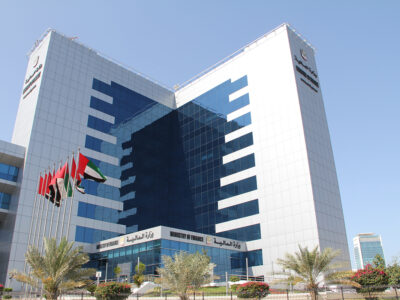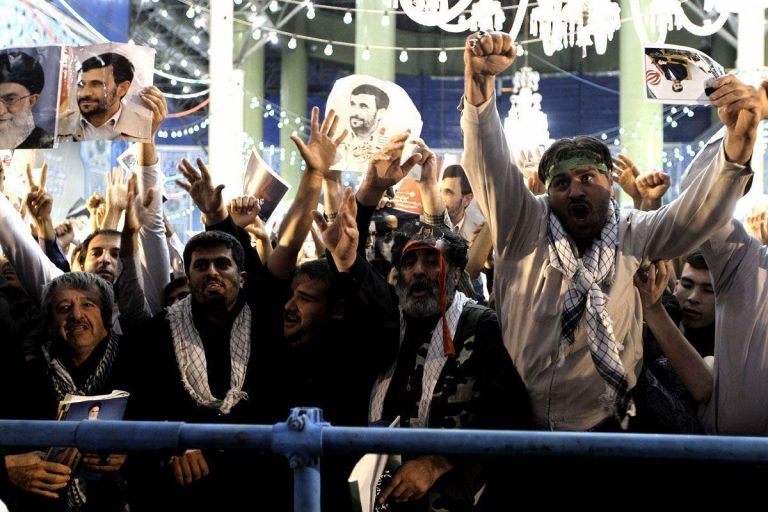Discrimination against Iranian companies operating in the UAE, or ‘Iranaphobia’, will have a damaging impact on trade between the two companies and will negatively impact the gross domestic product of the emirates, a leading Iranian business leader has warned.
“Over here now right now Iranian businessmen are facing some Iranaphobia, even though they might not be at all involved in any sort of export or import or have any link with the government or even be trading with the government,” Hossein Asrar Haghighi, co-founder and official spokesman for the Iranian Business Council in Dubai, told Arabian Business in an interview.
“Simply being Iranian they are getting some sort of discrimination from the bankers and institutions over here. It will have an impact on the economy of the UAE,” he added.
Iranian companies based in Dubai have long reported difficulties getting banks in the UAE to process their transactions.
Earlier this year, the US government forced Dubai-based Noor Islamic Bank to stop channelling billions of dollars from Iranian oil sales through its accounts, part of Western measures to curb Tehran’s disputed nuclear programme.
Asrar Haghighi has warned that the growing number of obstacles to trade between the two countries will have a negative impact on the gross domestic product (GDP) of the UAE.
“That will be a big negative effect on the economy of the UAE and trading between Iran and the UAE. If there is no way of trading between the UAE and Iran they will move to another country which will have a lot of consequences. Naturally the GDP of the UAE will be affected,” he claimed.
Rising tension over Iran’s nuclear programme prompted the European Union and the US to impose additional sanctions on the Islamic Republic, restricting trade and financial transactions.
Earlier this month, the UAE’s economy minister Sultan bin Saeed al-Mansouri confirmed that sanctions against Iran are hurting its trade with the UAE.
“Trade with Iran was always with consumable items. We should not really stop that. The issue is with the financial transactions. Regarding that, it has been affected,” he told a news conference.
“If you want to export 20 tonnes of rice, the financial system does not allow you to do that,” Mansouri said but did not elaborate.
Dubai has been a major centre for trade with Iran; re-export business between the two countries – goods sent to the UAE for on-shipment to Iran, and Iranian goods sent to the UAE for on-shipment to other countries – totalled 31.9 billion dirhams ($8.7 billion) in the first nine months of 2011, data from the UAE customs authority show.
The International Monetary Fund has estimated the sanctions could cost the UAE as much as 0.7 percent of gross domestic product if trade halts completely.
In April, a UAE accountancy firm cleared of European Union allegations it was operating as a front for the Iranian government is considering seeking compensation for damages to its reputation and the loss of more than 60 clients.
Morison Menon Chartered Accountants (MMCA) brought legal action against the Council of the European Union in December 2011 after its name was added to a list of companies suspected of being “involved in the nuclear or ballistic missile programmes of the Islamic Republic of Iran”.
Following an investigation, MMCA was found innocent of claims it was operating as a front for the Islamic Republic of Iran Shipping Lines (IRISL) by the European Communities Court of Justice in Luxembourg, and removed from the list on April 24.
However, Raju Menon, managing partner of MMCA, told Arabian Business it had lost some clients as a result of the listing and was also forced to drop more than 60 clients it had in Iran.
“We lost a few clients… We can definitely ask for damages… We had more than 60 Iranian clients… That has already been stopped. We don’t have any Iranian clients we are working with,” he added.
In light of such cases, Farhad R. Alavi, a partner at Washington DC-based law firm BHFA Law Group, said companies in the UAE and further afield were now having to become more prudent about the clients they take on.
“I am seeing increased inquiries from businesses in the Gulf Cooperation Council on these issues, and increasingly businesses around the world are realising that the aftermath of the current sanctions regime in place against countries like Iran and Syria has created a heightening need to stay away from sensitive jurisdictions and entities, and to take more caution in knowing their customers and counterparties,” he added.








